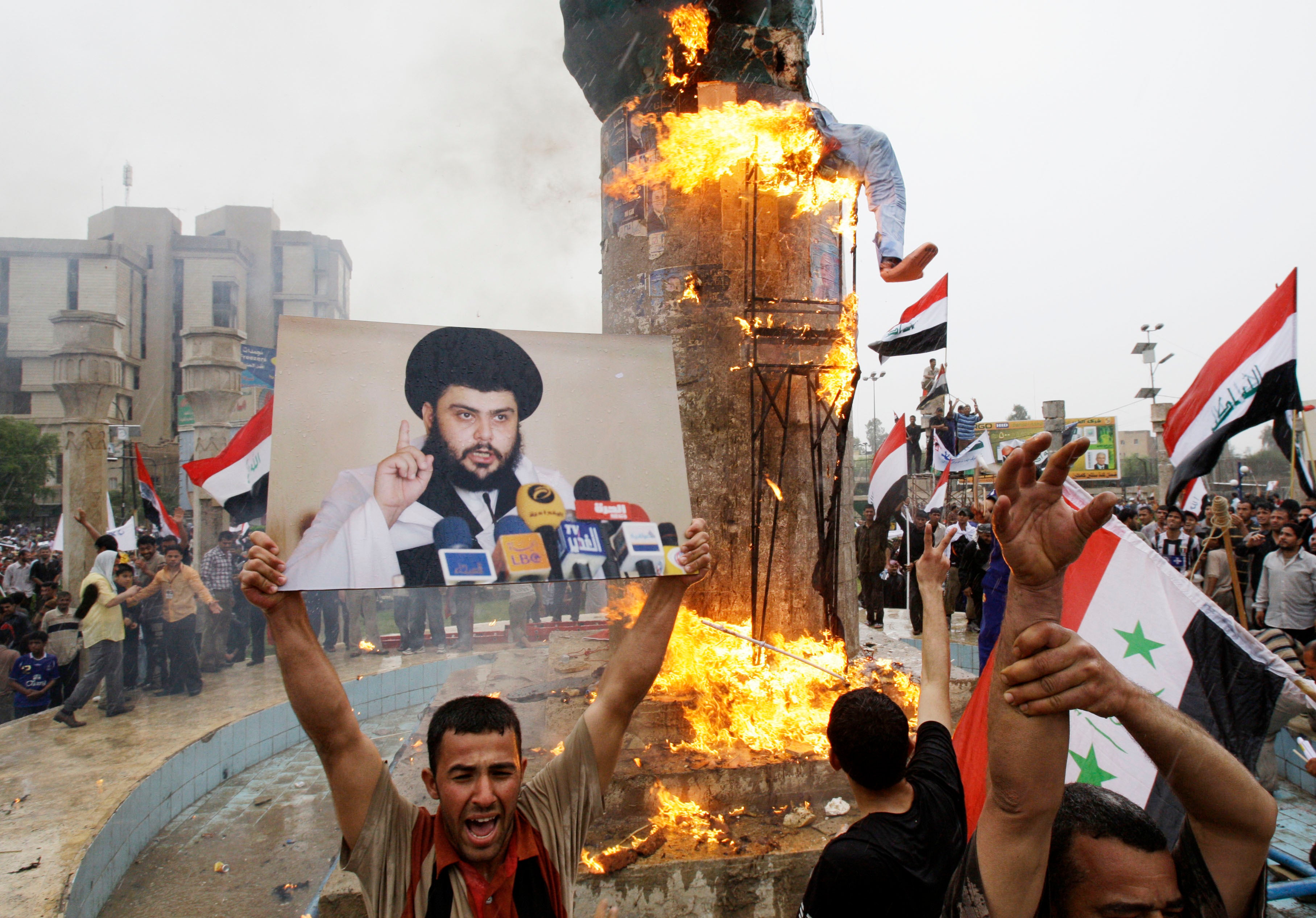No end to crisis as Iraq's PM ends second round of talks
Iraq's caretaker prime minister has convened a second round of talks with Iraqi leaders aimed at resolving the ongoing political crisis between rival Shiite blocs

Your support helps us to tell the story
From reproductive rights to climate change to Big Tech, The Independent is on the ground when the story is developing. Whether it's investigating the financials of Elon Musk's pro-Trump PAC or producing our latest documentary, 'The A Word', which shines a light on the American women fighting for reproductive rights, we know how important it is to parse out the facts from the messaging.
At such a critical moment in US history, we need reporters on the ground. Your donation allows us to keep sending journalists to speak to both sides of the story.
The Independent is trusted by Americans across the entire political spectrum. And unlike many other quality news outlets, we choose not to lock Americans out of our reporting and analysis with paywalls. We believe quality journalism should be available to everyone, paid for by those who can afford it.
Your support makes all the difference.Iraq's caretaker prime minister convened a second round of talks Monday with Iraqi leaders aimed at resolving the ongoing political crisis between rival Shiite blocs, but the representatives of an influential cleric failed once again to attend the gathering.
The seat reserved for Shiite cleric Muqtada al-Sadr's party was empty as Prime Minister Mustafa al-Kadhimi met with al-Sadr's chief political rivals in the Iran-backed camp, as well as President Barham Salih and U.N. representative Jeanine Hennis-Plasschaert.
Al-Sadr's continued absence from the talks will likely render futile al-Kadhimi's efforts to broker a solution to Iraq's 11-month crisis. The participants “renewed the invitation" to al-Sadr's camp “to participate” in the meetings, according to a statement from al-Kadhimi's office.
The participants agreed to form a technical committee to develop a road map to find common ground and hold early elections.
Al-Sadr and his political rivals, the Iran-backed Shiite groups, have been at odds since after last year’s parliamentary elections. Al-Sadr won the largest share of seats in the October vote but failed to form a majority government. He has demanded early elections and the dissolution of parliament.
His Iran-backed rivals in the Coordination Framework, an alliance of mostly Shiite parties, agree in principle to holding early polls but disagree on the mechanism. Al-Sadr is demanding that the judiciary dissolve the legislature but his rivals are insisting the parliament should convene to do this. They are also at odds over the current electoral law that would govern the polls and which the Coordination Framework wants amended.
Al-Kadhimi, who held a first round of talks on Aug. 17, has threatened to resign if political blocs fail to find a resolution, which would deepen the crisis. Iraq's caretaker finance minister resigned last month.
Al-Sadr's loyalists clashed with Iraqi security forces last week after earlier protests by his supporters turned deadly in Iraq's heavily fortified Green Zone, the seat of the government. At least 30 Iraqis died and over 400 were wounded in the fighting which brought Iraq to the brink of street warfare. The hostilities came to an abrupt halt when al-Sadr commanded his loyalists to withdraw.
Al-Sadr's supporters stormed the parliament building on July 30 to prevent his rivals from forming a government. The government formation process has been stalled ever since.